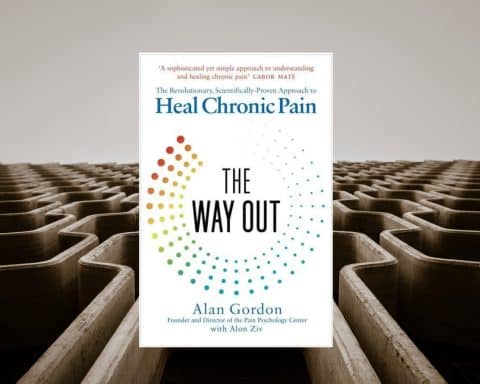Maria Victoria Bovo is a paediatrician from Argentina currently working in Barcelona, Spain
John Launer is a GP and family therapist, working as an educator for Health Education England in London. He is the author of Narrative-Based Practice in Health and Social Care: Conversations Inviting Change. Abingdon: Routledge, 2018. Twitter @johnlauner
This is an account of a remarkable conversation the two of us had in December 2021 during an online workshop in narrative medicine. We had never met before.
Maria Victoria Bovo writes: I’m a thirty-seven-year-old mother, wife, and paediatrician working in Spain. Now, I’m also a ‘long COVID patient.’ It has been more than a year since my first acute symptoms of COVID-19 appeared, and I’m still tired, breathless, and suffering from headaches and ‘brain fog,’ which has reduced my attention span, concentration, and memory. These symptoms are incapacitating me both personally, in interactions with my family, and professionally, as I cannot resume my job. I have written an account of my experiences for ‘Health Affairs’ called ‘Long Covid’: Making the Invisible Visible’. I have also recorded this as a podcast.
John Launer writes: My background is as a GP in London and family therapist. I now work as a medical educator with a particular interest in supervision. I use an approach based on narrative medicine called ‘Conversations Inviting Change’. This uses precise, focused questions to invite people to tell their stories and reflect on aspects they may not have explored previously. Some of the questions resemble coaching, but with a focus on inviting a different narrative.
My conversation with Maria Victoria took place when I was teaching online on a Masters course in applied narrative medicine in Milan. The class included clinicians and service managers. As usual, I asked for a volunteer from the class who could bring me an account of a professional dilemma causing them concern. I explained that I wanted to give them the opportunity to tell their story and reflect on it, while demonstrating the use of narrative ideas and skills. Maria Victoria offered to speak about her attempts to come to terms with the possibility she might not be able to return to her work because of long Covid.
We spoke in English. The course tutor, Maria Giulia Marini, translated our words into Italian for the rest of the class. (Paradoxically, translation can aid conversation because it gives you time to reflect. Although remote supervision can reduce intimacy, I have also found it can embolden people.) What follows are my notes afterwards, which I sent to Maria Victoria. These are followed by extracts from our email exchange and Maria Victoria’s reflections.
Maria Victoria offered to speak about her attempts to come to terms with the possibility she might not be able to return to her work because of long Covid.
John’s notes: I supervised a doctor from Argentina working as a paediatrician in Barcelona. She has a four-year-old daughter. She had Covid on March 2020, was in hospital for 9 days, and feared she would die. After her admission she was in quarantine at home for 3 weeks but has been unable to return to work properly since because of fatigue, muscle loss and other symptoms.
She described herself as a perfectionist and said that work has been her life. She Is now able to see a few patients (unpaid), but she knows that she should see more. Unless she is back to fitness within two years of getting ill, she will need to leave her job. She set as her goal for the conversation ‘to be at peace with this’ (Some of this information was from her narrative at the beginning of the supervision but some also emerged during the conversation.)
Some of our important exchanges were as follows:
J: Who are the significant people around you at work?
MV: There’s my boss, she’s really supportive and understands.
J: Is there anyone who you are finding more difficult?
MV: Yes, my closest colleague. She treats me like before.
J: Tell me about that colleague.
MV: [Crying] She is exactly like the person I used to be.
J: If you imagine I’m her, what would you want to say to me if you could do this without any restraint?
MV: [Crying] “I´m sorry. I´m so sorry… Because no matter how hard I try, I’m never going to be like the person I used to be”
I found this extraordinarily moving and had tears in my eyes. Later, I asked her about what her husband would say she should do. She said that he said he loved her and that a possibility of a future direction would emerge for her. I asked her what she thought that would be and she said maybe exactly what she was doing now: narrative medicine. Her experience of illness had given her new understanding and new values. She had helped to set up a clinic for children with long Covid. She wanted to have more time with her daughter. In a way she was at peace with what had happened, her difficulty it was only in relation to letting go of the job. At one point she mentioned she was seeing a psychologist and a coach, but they had not asked her these questions and she found them helpful.
Afterwards, others in the class said were surprised I just said, “Tell me about that colleague.” They expected me to ask, “how do you feel about that?” or “what is your relationship like with her?” I explained that the approach of ‘Conversations Inviting Change’ depends on helping the story to move forward rather than ‘digging down’.
Maria Victoria’s email in response: Thank you for writing and sharing your notes, which I found very helpful because I couldn´t remember how you formulated the questions. When I read them, precisely at the inflection point you wrote, I realised what happened and started to feel free. It is incredible after more than a year of therapy and a lot of writing and talking about it. And the notes that you took are very precise …
John’s reply: … I should say that the supervision I carried out with you was one of the most moving I have ever done. This was because of your personal courage, and perhaps because it was taking place in such an important context for you, among fellow students on the Narrative Medicine course which has become part of your new direction in life. I imagine that your psychotherapy also laid the ground for making such a big step forward on this occasion.
The inflection point was when John asked me: “Tell me about that colleague…”. I always wanted to be like my colleague.
Maria Victoria comments: After this email exchange with John, I wrote down some further reflections as follows:
The inflection point was when John asked me: “Tell me about that colleague…”. I always wanted to be like my colleague. She has a lot of experience, knowledge, and energy and is always doing many projects simultaneously. I used to admire her. But at that moment when John asked me to talk about her, when I thought about her, I saw myself. I realized that we were already very similar. I saw myself like in a mirror; instead of my colleague, I saw reflected the one I used to be. Remembering me, that person that I am not anymore. Although I try to accept myself after a lot of work, as my family does, it still hurts. It hurts to give up who I was. The loss of my identity. I must learn to deal with it and accept and create a new one.
At that moment, I also realized that the problem was not her, that the conflict was actually me, although it is tough to face it and admit it. But to realize it, somehow, made me feel free. In peace. Relief. Because it´s like it changed the point of view. From feeling like a victim, not able to control or change anything… to having the opportunity to accept me in my professional life and to assume the consequences that might overcome. To face it with me, in order to be able to face it with others. I must recognize my limits, share them with my colleagues, and maybe, then instead of feeling vulnerable, I will be allowing them to accept me in turn.
When John suggested: If you imagine I’m her, what would you want to say to me if you could do this without any restraint? I answered [Crying] “I´m sorry. I´m so sorry… Because no matter how hard I try, I’m never going to be like the person I used to be”. Actually, I was apologizing to myself. To forgive myself for losing my identity. For giving up person I used to be. For letting her go. I felt guilty. Because no matter how hard I´ve tried, it was not enough.
I still have that conversation “If you imagine I’m her, what would you want to say to me if you could do this without any restraint? “… waiting to have it with my colleague. When I’m prepared enough to face it with myself, probably then, I will be able to talk to her.
In less than two months, I must be working again. I was feeling that time was running out. I felt it was “Time over.” I wasn´t prepared to go back to work like I used to. Now, I like to think that I am like a writer. That I wrote my old objectives because I needed them at that particular time. But they are not any more the ones that I need now. So, I can edit them. I can erase them. I can stop, listen to my heart, and start writing new objectives again according to my situation. They might not be the ones that others or I expected, wanted, liked, or chose. But I’ve learned that it is much difficult to give up and accept than to keep trying to hold some objectives that don´t belong to me anymore. They are just too heavy to hold them. They don´t allow me to start moving again.
So, it’s time. It´s time to let those objectives go. It´s time to write new ones. It´s time to create a new identity. It’s not “Time over” … It’s time to start over again.
Featured image by Marcos Luiz on Unsplash







Most health professionals have probably now heard of narrative medicine. It focuses on the central role of stories in medicine and the need to pay close attention to them. Narrative-based practice is part of narrative medicine. It places a special emphasis on the use of narrative skills in everyday work in health care, and on training, especially for patient consultations and supervision.
Two new papers highlight the core approach of narrative-based practice. Writing in the Postgraduate Medical Journal, John Launer proposes that doctors should replace the concept of history-taking with the idea of ‘listening to the story.’ In another paper, for the British Journal of General Practice, Maria Victoria Bovo and John Launer describe a remarkable conversation they had when John was teaching ‘Conversations Inviting Change’ in Milan.